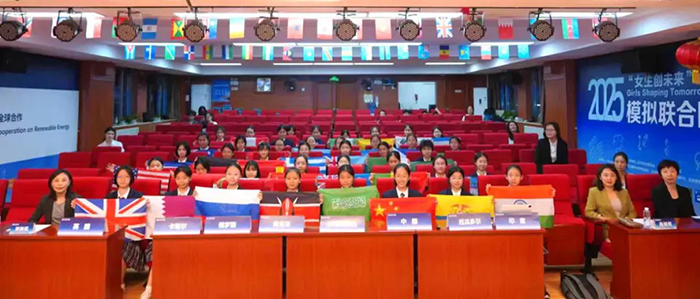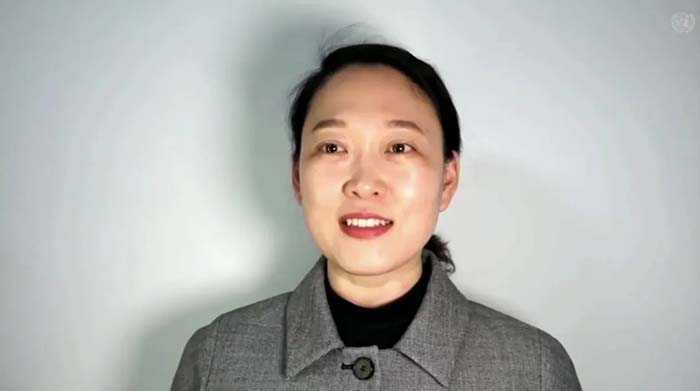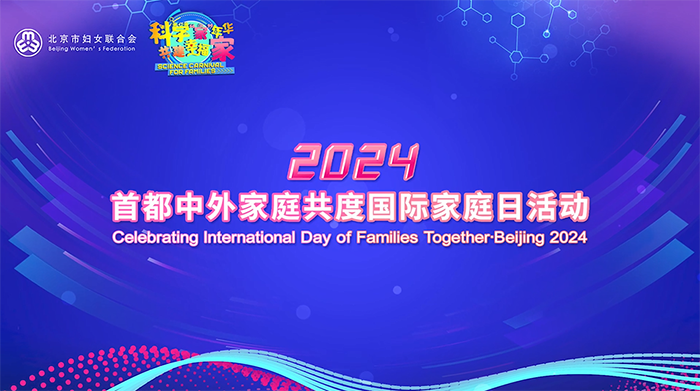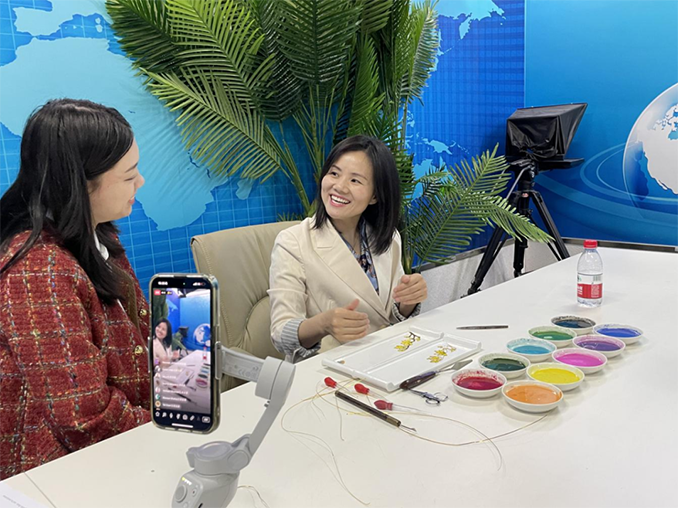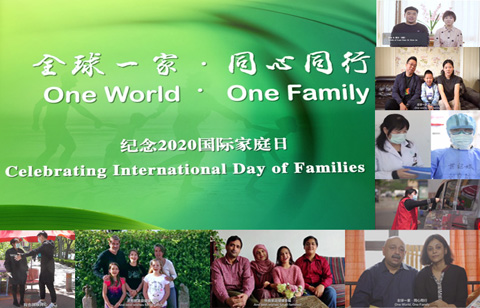2025 Girls Shaping Tomorrow Program Part III: Youth Power Advocates for Global Energy Cooperation and Model UN Supports a Sustainable Future
Date:2025-9-29 9:28:42 Views:
The 2025 “Girls Shaping the Future” Model United Nations Program was jointly organized by the Beijing Women’s Federation (BWF) and the Beijing Association for Science and Technology. It was co-hosted by the Beijing Women’s International Exchange Center, the Foreign Language Teaching and Research Press, and the Education and Training Center of Beijing Foreign Studies University. The program recently concluded after six months at the Capital Base for the Development of Women and Children—Beijing ESBNU Huaxia Girls’ Middle School. With the theme “Promoting Global Cooperation on Renewable Energy,” the event aimed to help young women expand their international horizons and engage with global affairs and issues. It also sought to channel their youthful energy toward advancing the Global Development Initiative and participating in international governance.
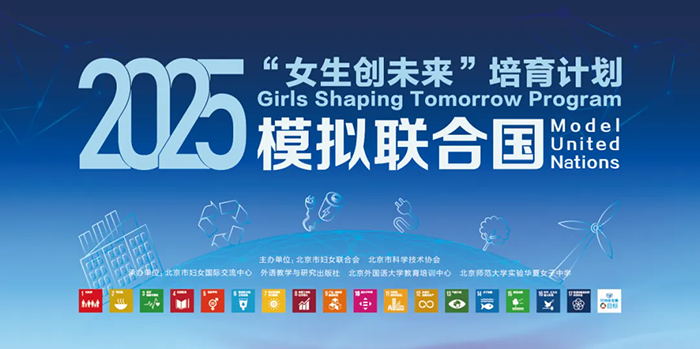
Youthful Leadership, Shared Vision for Global Development
“The delegation of Senegal proposes a moderated caucus on the topic of financing and technological support for renewable energy in developing countries…”
“The Chinese delegation proposes establishing a technology-sharing platform to enhance international cooperation…”
“The Kenyan delegation proposes that leading enterprises across industries collaboratively establish an open-source renewable energy alliance to standardize technical norms…”
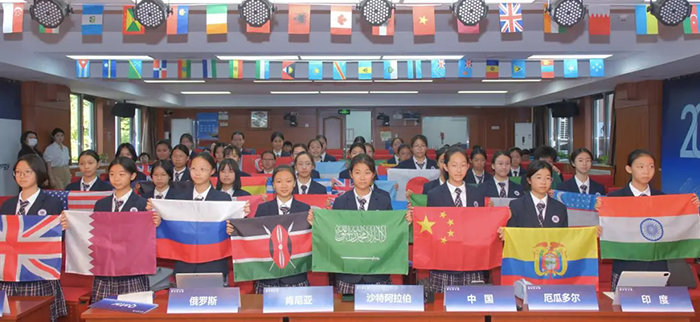
On September 25, the Model United Nations conference began to the sound of stirring music. Student delegates, well dressed in formal attire, entered the venue one by one. Each carried the flag of a UN member state, exuding confidence and poise. With resolute eyes and steady steps, they marched forward as the flags fluttered through the hall. Their display was a vivid testament to the global vision and youthful vitality of today’s young generation.
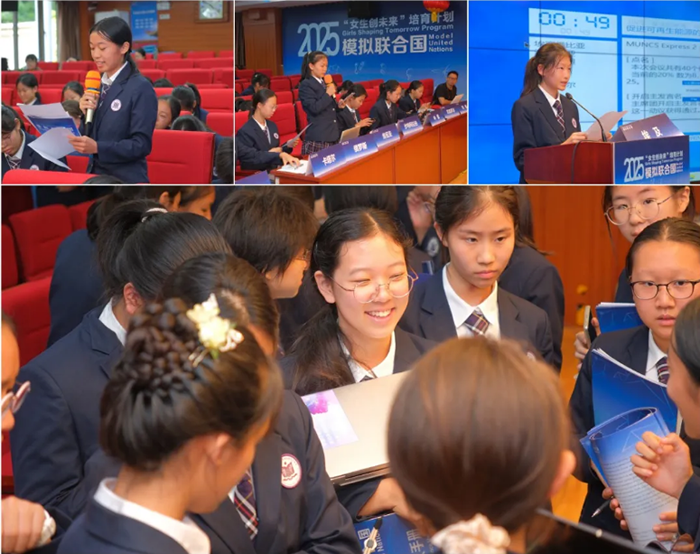
The students adhered to UN rules of procedure and took the floor as “diplomats” representing 40 countries. They presented the current state of renewable energy in their respective nations and proposed solutions to foster global cooperation. As their ideas met and clashed, they engaged in in-depth discussions, debates, and lobbying, actively negotiating to gain more allies. Ultimately, they sought common ground while acknowledging their differences, producing a draft resolution that reflected a broad-based consensus.
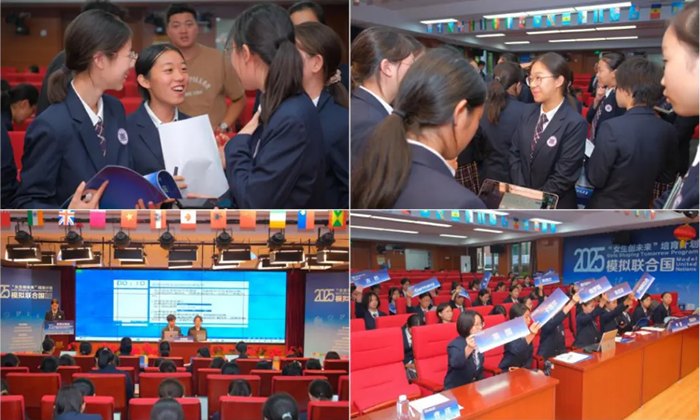
After a solemn vote by all member-state delegates, two-thirds cast their ballots in favor. With the strike of the gavel, the draft resolution was officially adopted. This marked the transformation of the collective efforts of all countries into a shared commitment to action. Prolonged applause filled the hall. Wang Chenshu, recipient of the “‘Her Elegance’ Diplomatic Style Award,” expressed her joy: “Through this event, I came to recognize the crucial role women play in global sustainable development. Going forward, I will embrace my responsibility as a global citizen and contribute to our shared future.” Through their actions, the young delegates brought multilateralism to life and demonstrated an unwavering commitment to sustainable development.
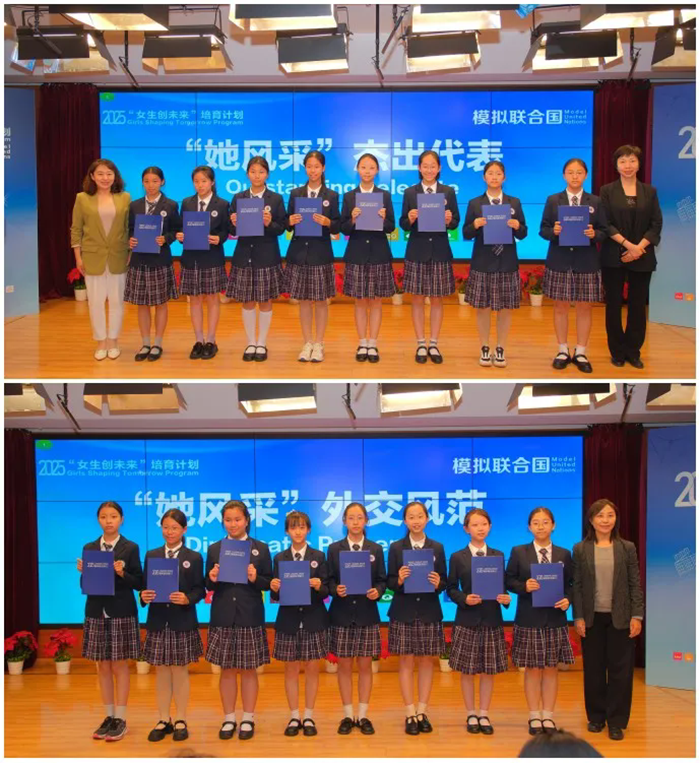
Innovative Thinking, Broadened Global Vision
To establish a strong foundation for the Model UN activities, the program conducted six months of systematic curriculum development and on-site teaching workshops. Under the guidance of instructors from FLTRP, the students began with core topics, including the UN rules of procedure and the Sustainable Development Goals (SDGs). They then progressed to in-depth discussions on specific targets, such as “ensuring access to affordable, reliable, and sustainable modern energy for all.” Each exchange of ideas and every spirited debate highlighted the students’ keen insight and genuine concern for international affairs. These discussions reflected their growing sense of responsibility toward the global community.
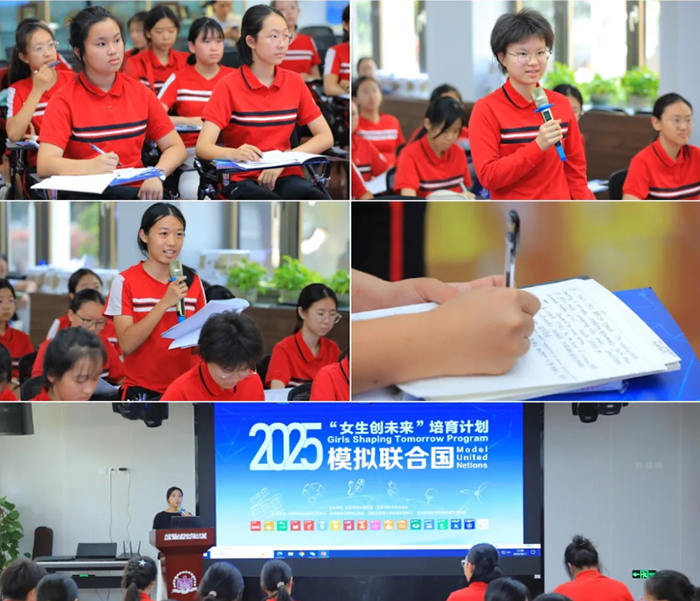
By consulting official sources such as the UN website, the International Renewable Energy Agency (IRENA), and UN Women, the students conducted thorough research on their assigned countries and topics. They then drafted position papers on behalf of their nations. At the same time, they received training in speech delivery and resolution drafting. This helped them strengthen their ability to articulate arguments and propose viable solutions during seminars and exchanges.
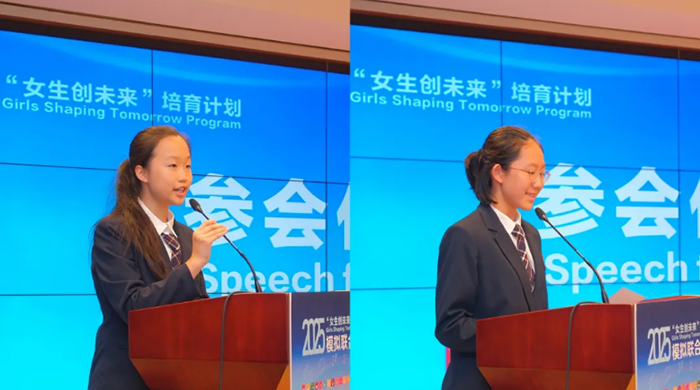
Yu Ziwei, the recipient of the “‘Her Elegance’ Outstanding Delegate” award, said excitedly, “The Model UN courses have given me hands-on experience in information processing, logical thinking, and collaborative communication. They have opened a door to the wider world and the United Nations for me.”
Building Platforms, Advancing Global Energy Cooperation
In response to current global trends in renewable energy and the associated opportunities and challenges, the students engaged in in-depth discussions and ultimately proposed a series of constructive solutions:
They urged all countries to clarify their energy transition pathways. They also called for the establishment of a “Global Renewable Energy Cooperation Platform” to promote technology sharing and help developing nations localize technologies such as photovoltaics and energy storage.
They advocated for coordinated regional energy development. This included creating an Asia-Pacific renewable energy industry chain alliance and promoting the interconnection of regional power grids in South America.
They proposed establishing a multilateral cooperation framework that integrates “technology, financing, and capacity” to reduce the cost of clean energy.
They recommended enhancing public education on energy conservation and promoting a culture of green energy. They also emphasized contributing to the global goal of achieving net-zero emissions by 2050.
“I used to think Model UN was just a platform for debate. After participating, I realized that building consensus is far more challenging than simply arguing. You have to set aside assumptions, listen carefully to others’ perspectives, and find common ground amid differences. It made me understand that the key to solving problems isn’t persuasion—it’s understanding,” said student Liang Zijin.
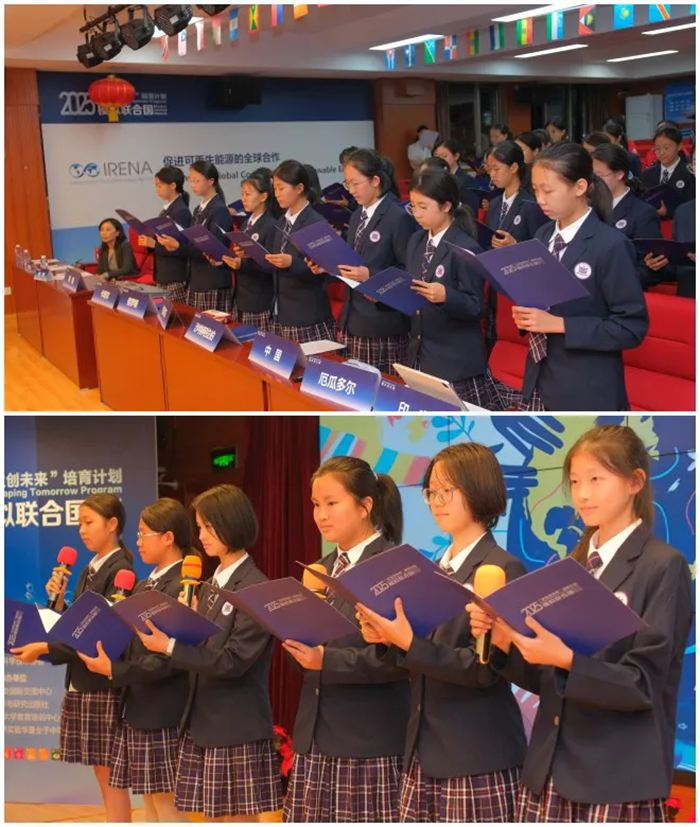
As proclaimed in Our Declaration for the Future, recited in unison by all students at the Model UN conference: “When the classroom meets the world, our destinies intertwine. With wisdom and courage, we will contribute to global governance and move forward toward a shared future for humanity!”
Looking ahead, the BWF will continue to serve as a vital bridge, actively creating platforms for international exchange among youth and supporting the growth of young women in science and technology. It will also help nurture globally minded and responsible future leaders. In doing so, it will empower the youth to contribute their talents to building a community with a shared future for humanity.
